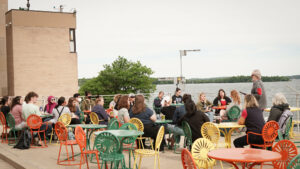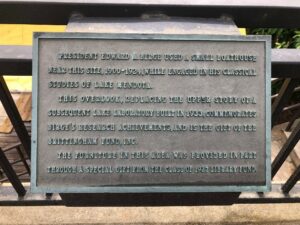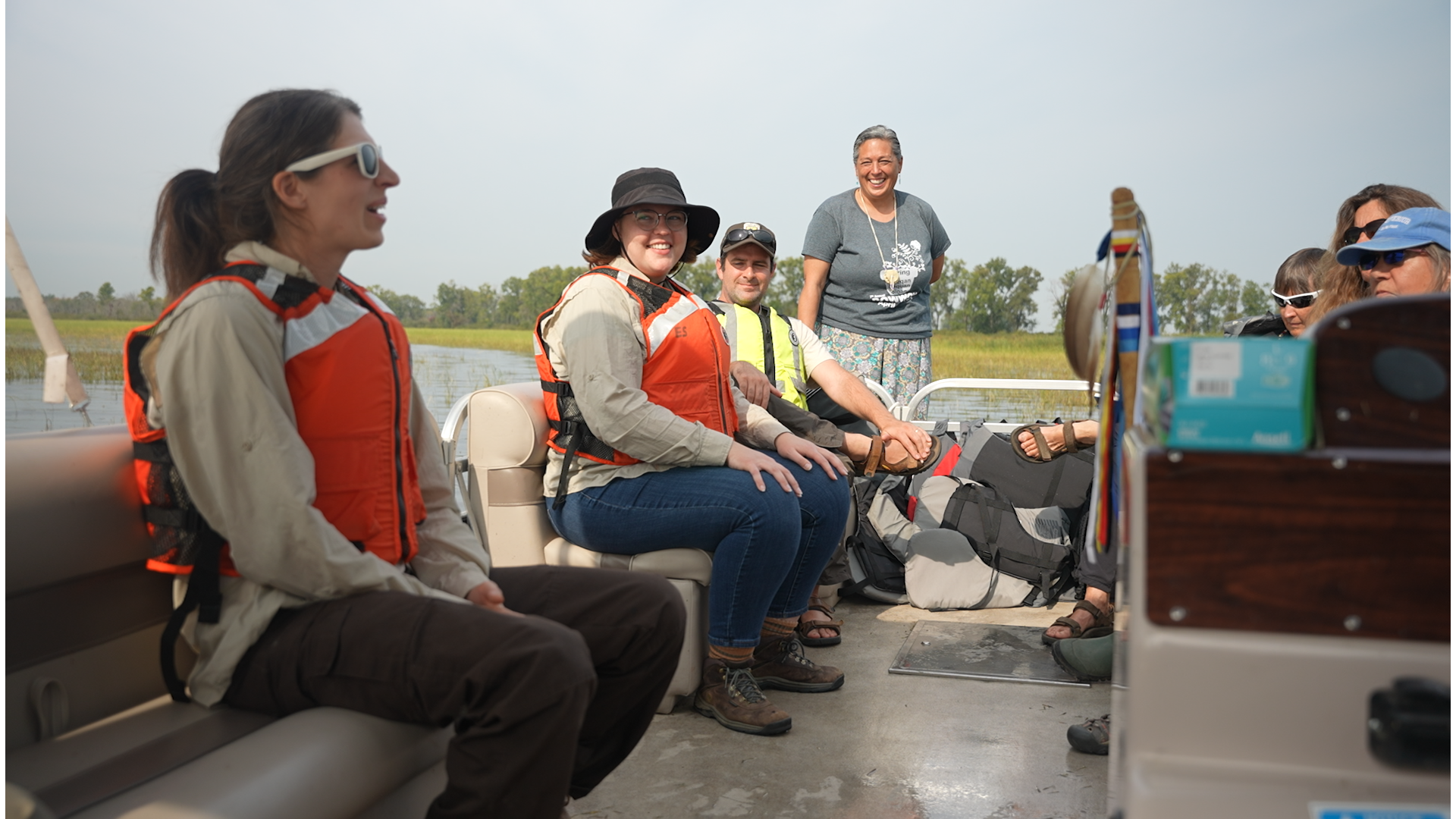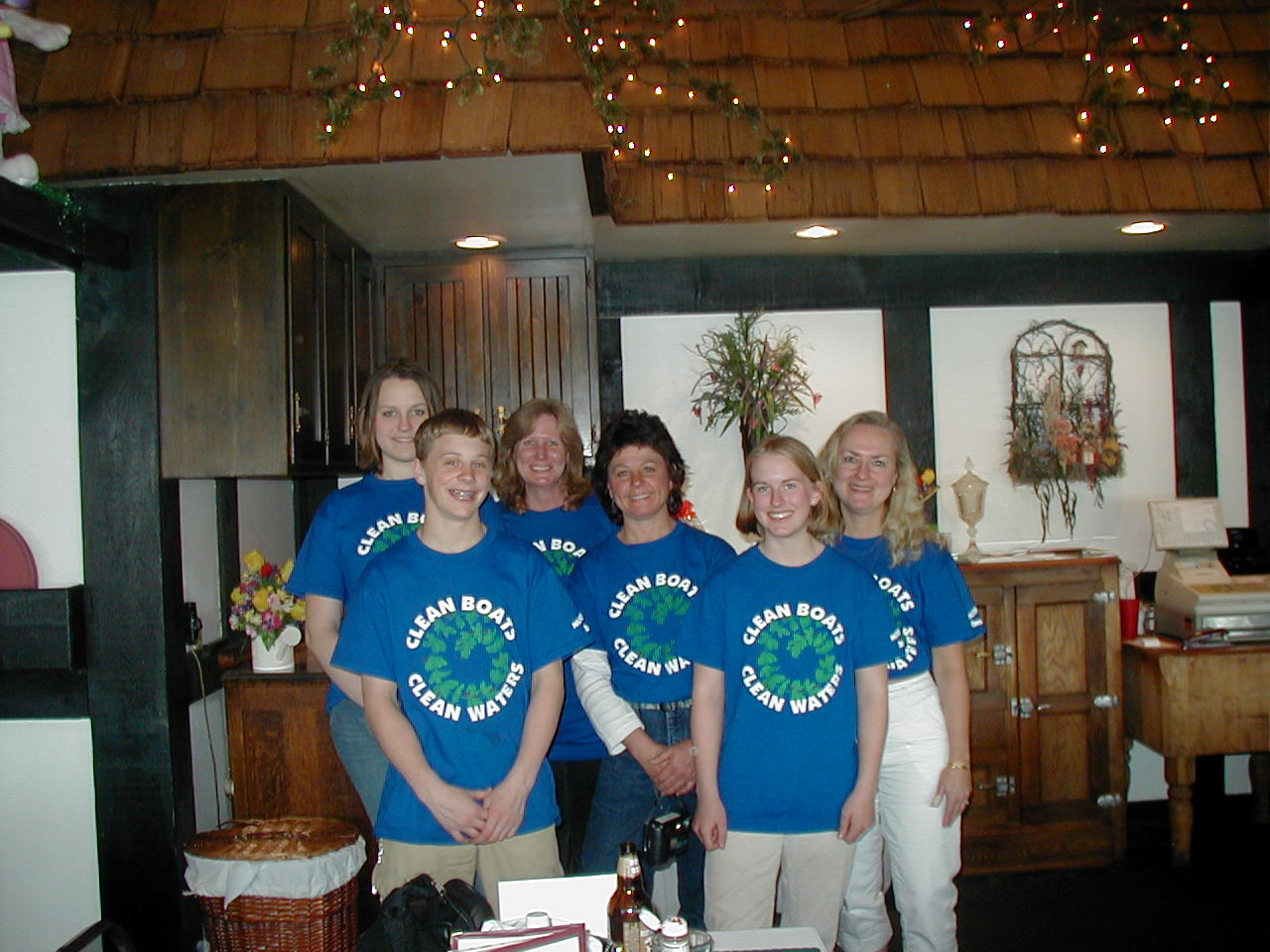A recent sunny morning on the Memorial Union Terrace of the University of Wisconsin-Madison seemed a literal representation of the sunny outlook of the nine undergraduate students assembled to kick off their 10-week summer freshwater research experiences.
Students were nationally recruited and hail from Michigan Technological University, University of the Sciences, James Madison University, North Carolina State University, Skidmore College and Beloit College. Three students didn’t have to travel far. They are currently enrolled at UW-Madison. Six of the students self-identify as underrepresented.

Undergraduate summer research students, mentors and Sea Grant Director Jim Hurley gather for a kick off meeting of the 10 week experience. Photo: Bonnie Willison
The cohort is the inaugural group of a new program to offer student research opportunities to enhance workforce development skills and expose undergraduates to graduate studies across the University of Wisconsin System and under the auspices of Water@UW-Madison, which connects water scholars across the state’s flagship campus.
“I’m thinking about going to graduate school and this internship will prepare me for freshwater research in both the lab and the field,” said Lily Wagner who smiled through a conversation despite being jetlagged following her return just hours earlier from a semester abroad in Copenhagen studying environmental sciences of the Arctic.
She will join the lab of Christy Remucal of the Department of Civil and Environmental Engineering to understand the degradation rate of the aquatic pesticide 3-trifluoromethyl-4-nitrophenol, which is used to control populations of invasive sea lamprey in the Great Lakes watershed.
Faculty mentors also have high hopes for the pilot research program. “This is a fantastic opportunity for our Water@UW-Madison community to come together in a different way; to share research with a new generation of water scientists,” said Grace Wilkinson, Center for Limnology.
Wilkinson reported being undaunted by the lack of a track record on the program and is looking forward to shepherding a student through a project that will look at how nutrient-rich waters in Dane County are transforming, storing or moving organic material and how the cycle is affected by climate change and anthropogenic pressures.
Her student, Victoria Wright, has experience in science communication. Wilkinson said she’ll tap into Wright’s expertise in creating communications products that will be used as part of a community science monitoring program based at two urban ponds in Middleton.
In remarks to the group, Wisconsin Sea Grant and University of Wisconsin Water Resources Institute (WRI) Director Jim Hurley called out features of the Memorial Union’s surroundings that are emblematic of UW-Madison’s leadership in water—nearby buildings, including the Center for Limnology and the Water Science and Engineering Laboratory; Lake Mendota, known as the world’s most-studied lake; and a plaque commemorating former UW-Madison President Edward A. Birge, often cited as the founder of the study of limnology.

A plaque on the UW-Madison campus details a history of water research.
Hurley said through the years countless research ideas have been sparked sitting alongside Lake Mendota, over beverages and in the company of enthusiastic scientific peers, and he was confident the 2022 Water@UW-Madison summer research students would be similarly inspired.
Sea Grant and its sister organization WRI are funding the program, as well as the Freshwater Collaborative of Wisconsin. The Freshwater Collaborative is part of a statewide initiative with support from the Wisconsin Legislature and Gov. Evers that is tackling 10 grand water challenges, as well as curriculum development, undergraduate research opportunities, career development and field training experiences for students with an interest in water-related offerings on UW System campuses. The collaborative is also a partnership of universities, connecting with industry, local communities, policymakers and advocacy groups. Its mission is to establish Wisconsin as a world leader in freshwater science, technology, entrepreneurship and economic growth.





